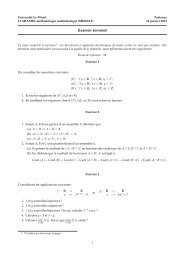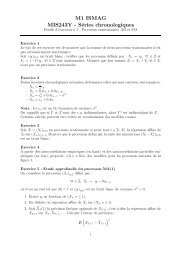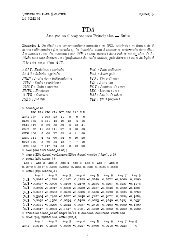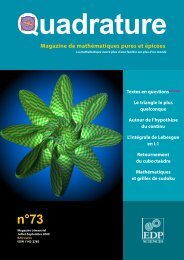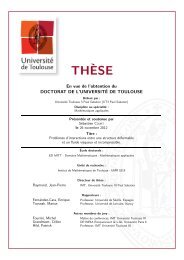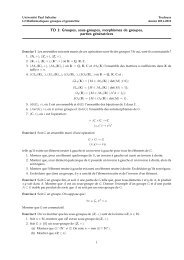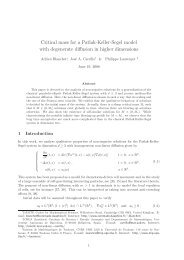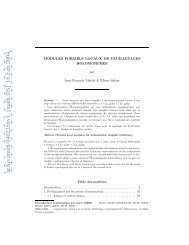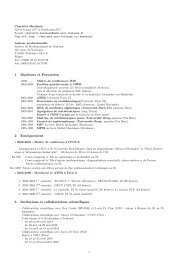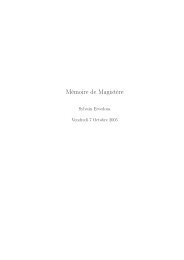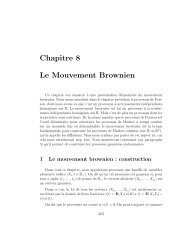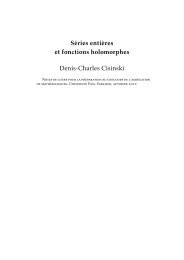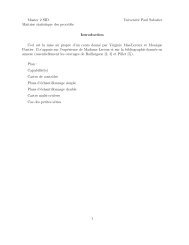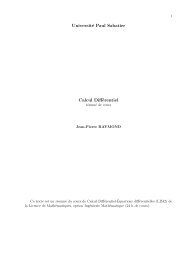Optimal Control of Partial Differential Equations
Optimal Control of Partial Differential Equations
Optimal Control of Partial Differential Equations
You also want an ePaper? Increase the reach of your titles
YUMPU automatically turns print PDFs into web optimized ePapers that Google loves.
98 CHAPTER 8. EQUATIONS WITH UNBOUNDED CONTROL OPERATORS<br />
and<br />
D(A) = {y | y1 ∈ H 2 ∩H 1 0(0, L), y2 ∈ H 1 0(0, L), y3 ∈ H 2 (0, L) such that y3x(0) = y3x(L) = 0}.<br />
We endow Y = H 1 0(0, L) × L 2 (0, L) × L 2 (0, L) with the scalar product<br />
(y, w) =<br />
L<br />
0<br />
( dy1<br />
dx<br />
dw1<br />
dx + y2w2 + γ1<br />
y3w3).<br />
1 - Prove that (A, D(A)) is the infinitesimal generator <strong>of</strong> a strongly continuous semigroup on<br />
Y .<br />
2 - We suppose that z0 ∈ H 1 0(0, L), z1 ∈ L 2 (0, L), θ ∈ L 2 (0, L), u1 ∈ L 2 (0, T ), u2 ∈ L 2 (0, T ).<br />
Prove that system (8.7.32)-(8.7.34) admits a unique solution (z, zt, θ) in C([0, T ]; H 1 0(0, L)) ×<br />
C([0, T ]; L 2 (0, L)) × C([0, T ]; L 2 (0, L)).<br />
3 - Consider the control problem<br />
(P2)<br />
inf{J2(z, θ, u) | (z, zt, θ, u) ∈ C([0, T ]; Y ) × L 2 (0, T ) 2 , (z, zt, θ, u) satisfies (8.7.32) − (8.7.34)},<br />
where<br />
J2(z, θ, u) = 1<br />
T<br />
2 0<br />
L<br />
0<br />
(|z| 2 + |θ| 2 ) + β<br />
2<br />
γ2<br />
T<br />
0<br />
(u 2 1 + u 2 2),<br />
and β > 0. Prove that (P2) admits a unique solution. Characterize this solution by establishing<br />
first order optimality conditions.



